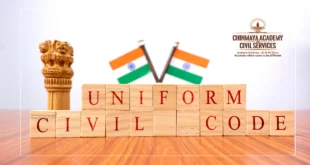- There is something rude and unpleasant in the way the Government is going about the task of demanding a big say in the appointment of judges in constitutional courts.
- The latest salvo is from Union Law Minister Kiren Rijiju, who has written to the Chief Justice of India to request that the executive be given a role in the appointment process, which now is being handled by a Collegium of judges.
- Reports say that the Minister wants the formation of a search-and-evaluation committee, with Government representatives, to suggest names to the collegiums in the High Courts and the Supreme Court for appointments.
- He is also understood to have asked for a representative of the Union government in the Supreme Court collegium, and a State government’s representative in the High Court collegiums.
- The letter comes as the latest in a series of official fulminations against the judiciary. Mr. Rijiju has been at the forefront of this attack, frequently questioning the collegium system by rightly highlighting some of its acknowledged flaws.
- There is little doubt that the Government’s anger is towards the 2015 judgment of a Constitution Bench striking down the formation of a National Judicial Appointments Commission (NJAC).
- While few would disagree that the Collegium system needs reform, the Government’s motive in carrying on a campaign against the judiciary in the name of seeking reform in the appointments process is questionable.
- The answers to some of the issues raised by the Government are quite simple, and has been repeatedly pointed out by the Court, as well as the political opposition.
- It can address the need for a more transparent and independent process by making a fresh legislative effort to establish a neutral mechanism that does not impinge on the independence of the judiciary.
- Until such an exercise to amend the Constitution achieves fruition, it has to abide by the law of the land, that is, the present system of appointments through the Collegium.
- It is difficult to avoid the impression that the Government’s tactics are bordering on veiled warnings: deliberately delaying action on recommendations; ignoring reiterated names even after multiple reconsiderations; and carrying on a campaign to delegitimise the institution.
- It is surprising that it seeks to rein in a judiciary that has been quite accommodative of the Government’s concerns on the judicial side in recent years.
- The only conclusion is that the current regime wants absolute control over who gets to be a judge in this country.
- A system of checks and balances that prevents any one branch gaining the upper hand is essential for democratic functioning.
SOURCE: THE HINDU, THE ECONOMIC TIMES, PIB
 Chinmaya IAS Academy – Current Affairs Chinmaya IAS Academy – Current Affairs
Chinmaya IAS Academy – Current Affairs Chinmaya IAS Academy – Current Affairs



